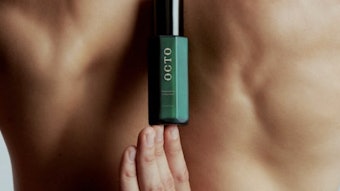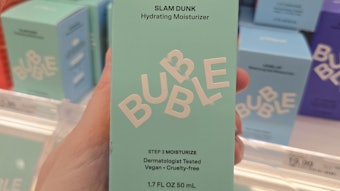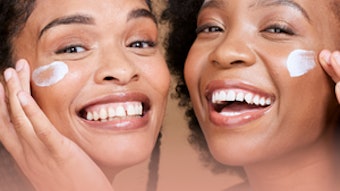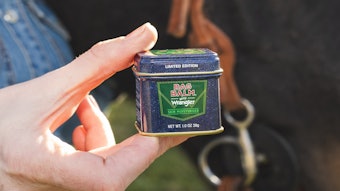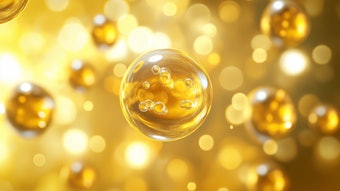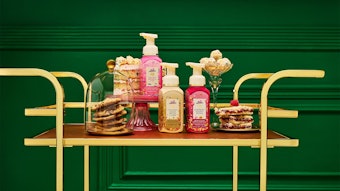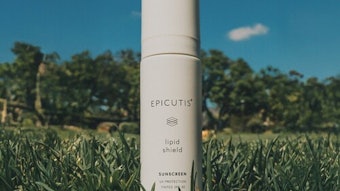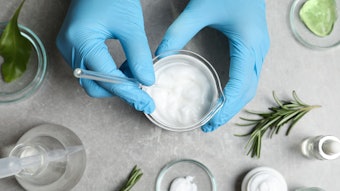
"וַיֹּאמֶר יְהוָה אֶל-שְׁמוּאֵל, אַל-תַּבֵּט אֶל-מַרְאֵהוּ וְאֶל-גְּבֹהַּ קוֹמָתוֹ--כִּי מְאַסְתִּיהוּ: כִּי לֹא, אֲשֶׁר יִרְאֶה הָאָדָם --כִּי הָאָדָם יִרְאֶה לַעֵינַיִם, וַיהוָה יִרְאֶה לַלֵּבָב."
שמואל א', פרק טז', פסוק ז'
But the LORD said to Samuel, "Do not consider his appearance or his height, for I have rejected him. The LORD does not look at the things man looks at. Man looks at the outward appearance, but the LORD looks at the heart."
1 Samuel 16:7
And the Lord was correct: men (and women) do look at the outward appearance.
The small cartoon on my desk shows two scientists in their laboratory. One says to the other, “I have a B.S. from Harvard, a Ph.D. from M.I.T. and my greatest discovery has been an oil-free moisturizing lotion.”
This cartoon has adorned my desk for many years. In some ways, it symbolized my mother's disappointment with my entering the field of cosmetics after getting my Ph.D. degree. In another way, it symbolizes the general belief that cosmetics is not a serious scientific field. The term, “cosmetic” itself, has taken on other meanings to reinforce this belief. Doing a cosmetic repair job in your home suggests the effects are superficial and not substantive.
In December 2016, I completed my 56th year as a cosmetic scientist. Over those five and a half decades, new formulations, ingredients and packaging have resulted in products with greatly improved cosmetic effects. However, even greater strides have been made in the last 25 years in our understanding of the physiological, sociological, emotional and economic benefits derived from cosmetics.
Culturally, we have been taught, ‘beauty is only skin-deep’ and we should not ‘judge a book by its cover,’ but this is simply not true. In fact, rather than being superficial and skin deep, cosmetics have benefits that can be far more profound.
Physiological and Emotional Benefits
About 30 years ago, responding to a request for help for a patient undergoing cancer therapy, Edward Kavanaugh, then president of the Cosmetic, Toiletries & Fragrances Association (now PCPC) established a program to supply cosmetic assistance to these patients. This assistance resulted in a significant improvement in the feeling of well-being and helped reduce the depression felt by people undergoing cancer therapy. The American Cancer Society soon joined the program. The program—completely supported by the cosmetic industry—was called, “Look Good-Feel Better.” The benefits were so noticeable, similar programs of aid to cancer patients were soon set up in all 50 states and also taken up in 26 other countries. Currently, “Look Good-Feel Better” has helped more than 1.6 million cancer sufferers.
More recent studies have confirmed and expanded upon the relationship between physical appearance and well-being. Humans are not so different from animals in this respect. It is well known that many animals spend considerable time grooming themselves and when they neglect doing this it is usually a sign of poor health and incipient disease.
Two recent studies reported in Psychology Today and the Journal of Psychiatric Research have further demonstrated how facial appearance can affect how we feel. Both studies showed that just making someone look less sad had an alleviating effect on depression (even with people who were unconcerned about their physical appearance). Just looking like you are sad can actually make you sad and it is not always the other way around.
So while it has long been recognized that what is happening inside the body can have an effect on the skin, the evidence is now quite clear that what is happening on the skin can profoundly affect all kinds of psychological emotions and even physical health.
Researchers at the Department of Psychology at Old Dominion University (1989) showed college women judged their body image more favorably when viewing pictures of themselves wearing cosmetics than without wearing cosmetics.
Studies from Japan (2013) found female college students that used cosmetics and grooming products had a positive effect on sleep habits and mental health.
Other researchers showed applying cosmetics to conceal facial pigment spots resulted not only in excitement of people viewing their unblemished faces, but also a measurable scientific boost to their immune system.
Just last year, researchers from the School of Psychology at Bangor University reported (with people who overestimated their body size) the application of a fragranced deodorant improved their self-judgement of their body size.
Cosmetics (in the U.S.) are usually classified as products that do not affect the structure or function of skin, however there seems little doubt that cosmetics can and often do have an even more profound effect on the body and feelings of well-being.
In 2011, a report in Applied Psychology attempted to analyze whether subjective well-being contributes to health and longevity. The authors concluded the evidence for the influence of self well-being on health and mortality is clear and compelling. High self well-being can add four through 10 years to life in comparison to low self well-being.
Research coming from University departments of psychology, medicine, economics, sociology, etc. is proving cosmetics not only can produce changes relating to health and wellbeing, but also the associated benefits may be even more impressive.
Economic Benefits
Daniel S. Hamermesh, professor of economics at the University of Texas and the University of London has studied the economics of beauty for many years. His recent book Beauty Pays, Why Attractive People Are More Successful reviews his and other researcher findings. As an economist, Hamermesh's thesis is that beauty is both rare and highly desired and like anything that is rare and desired, it has value. His book demonstrates how society favors the beautiful and how better looking people experience startling, but undeniable benefits in all aspects of life. Hamermesh was certainly not the first to recognize the desirability of beauty. Plato saw it as one of the three wishes of every man, “To be healthy, to be rich by honest means and to be beautiful.” Even Darwin recognized this when he commented, “If everyone were cast in the same mold, there would be no such thing as beauty.”
And to my knowledge neither Plato nor Darwin were influenced by glossy magazine advertisements or television commercials.
A paper published in J. of Applied Social Psychology (2006) titled, “Cosmetics; They Influence More Than Caucasian Female Facial Attractiveness” found women wearing cosmetics were perceived by men and women as being healthier, more confident, having greater earning potential and with more prestigious jobs than the same women without cosmetics. Two thousand four hundred years earlier, Aristotle made the same observation, “Personal beauty is a better letter of recommendation than any letter of reference.”
In a study of nearly 300 Dutch advertising agencies, economists found firms with better-looking executives had higher revenues.
Beautiful people also have an upper hand in politics. A study in Finland found both male and female political candidates who look better than their competitors are more successful.
Benefits in the Elderly
In the 1980s, researchers from the Perelman School of Medicine at the University of Pennsylvania studied the effect of cosmetic makeovers on self-perception of hospitalized, elderly patients. Makeovers had short-term positive effects on appearance, socializing, feelings, self-image, outlook and attitude. Self-perception improved one month after the makeover and cosmetic care increased.
In another fascinating bit of research, Shiseido and Chiba University have demonstrated when elderly, hospitalized woman are encouraged to apply facial makeup regularly, more muscle loading is imposed on the shoulders and arms resulting in increased strength. In a similar study, researchers asked 19 elderly women whose average age was 90 to continue applying makeup every day. Three months later, their grip strength had risen by two kilograms on average.
Research results by other universities and study groups have found if elderly women apply makeup, it can lead to an improvement in dementia symptoms and reduced stress. The purported synergy effects include putting elderly women in a better mood, resulting in a tendency to hold more conversations and improve the appetite. Some hospitals and nursing care centers have introduced cosmetic therapy for patients and elderly people as a result. If elderly women are reluctant to walk, stretch or do other physical exercise, they can experience a sense of joy even if all they do is put on makeup.
In another study (2012), scientists evaluated the effects of cosmetic therapy on brain activity using measures of electroencephalogram pattern abnormalities. Subjects comprised 43 women living in homes for the elderly. Analysis showed cosmetic therapy normalized the electrical distribution on the scalp and decreased the size of regions with abnormal fluctuations.
A more recent study (2014) examined the effect of cosmetics on brain activation. Emotional responses to a photograph of an individual’s face with or without makeup were evaluated. The results showed a significant increase of blood flow in the frontal brain area when the subject looked at a photograph of herself made up as compared to not made up. In a second study including women classed as “low vigor” (depression-tendency pattern), makeup produced a significant increase in the blood flow level over a wide frontal brain area, indicating brain activation.
Conclusion: Cosmetics are About More than Just Looking Good
So, cosmetics can make you look better, feel better, feel happier, feel more confident, boost your immune system, make you feel thinner, make other people think you are more attractive, more competent, have a more important job, are worth a higher salary, improve physical strength, improve brain function …
And some people say cosmetics are expensive?
The use of cosmetics has been demonstrated as a relatively simple way to improve self well-being. Considering all the above studies, it is only reasonable to believe in the coming years additional benefits will be found. So, while our products have a “cosmetic” effect on the skin, their benefits reach down to the soul.
I'm proud I chose to be a cosmetic scientist.

